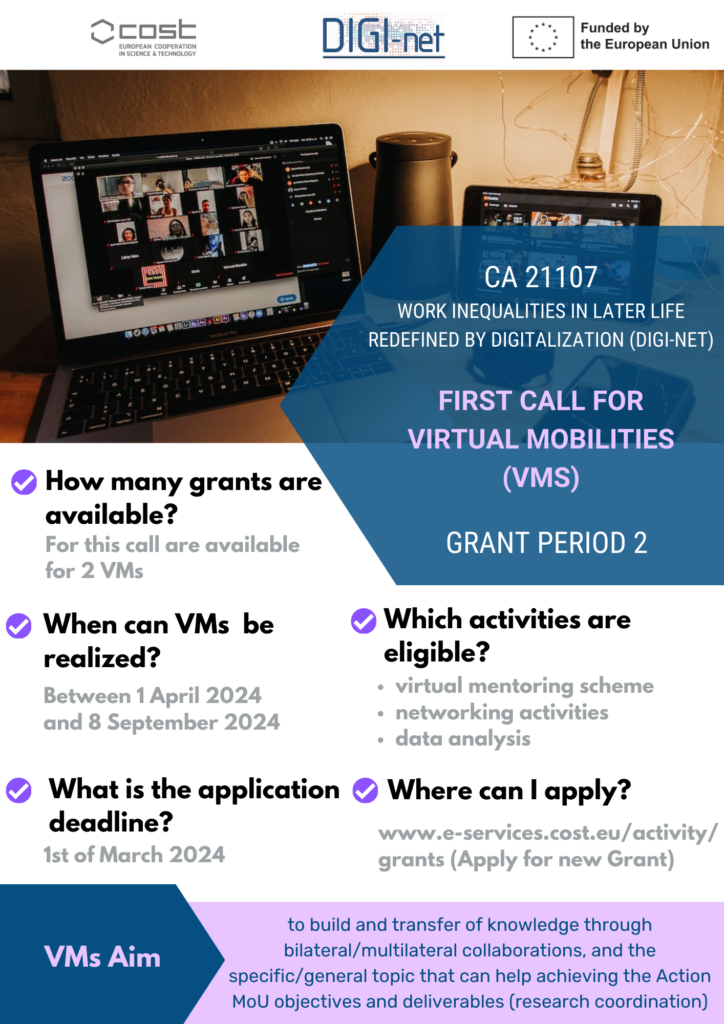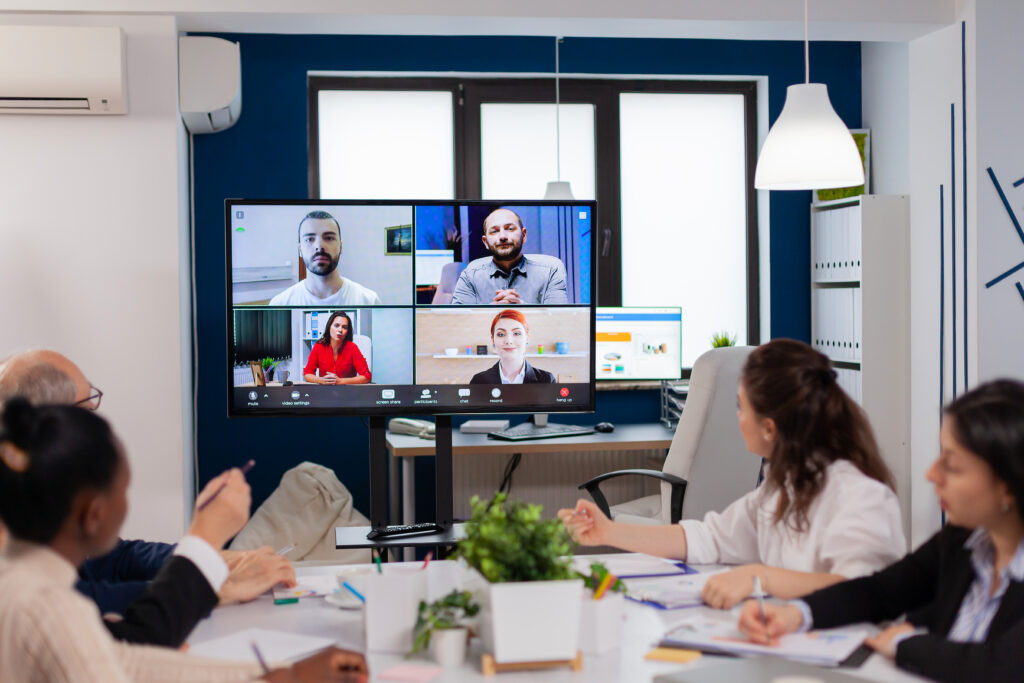Virtual Mobilities Grants
Virtual Mobilities (VMs) are very flexible and inclusive networking activities crucial to establish new collaborations or reinforcing existing collaborations across disciplines and different sectors with possible impact on career development. Virtual Mobility consists of collaboration in a virtual setting among researchers or innovators within the DIGI-net, to exchange knowledge and learn new techniques. These virtual mobilities are done by researchers or innovators for specific work aiming at the capacity building and transfer of knowledge through bilateral/multilateral collaborations, and the specific/general topic that can help achieve the DIGI-net objectives and deliverables
We are pleased to announce the first DIGInet call for VM (grand period 2). The call is now open.


Example of VM: The role of digital technologies for older workers nexus work inequalities
Dr. Esra Kabaklarlı cooperated with Countries and researchers from Cost Action 21107 involved in the project ALBANIA (Prof Rezarta SHKURTI (PERRI)
During the duration (19th July 2023 – 19th Oct 2023) of Virtual mobility were the main activities performed:
- Data Collection and Empirical Analysis: At this stage, the relationship between the older labour force participation rate and information and communication technologies (ICT)has been examined by employing Random and Fixed Effect Models along with the Driscoll-Kraay standard error Estimators for selected 37 OECD countries in the period between 2000-2022.
- A survey questionnaire on platform work was formed with participants to understand their level of platform work awareness, interest, and attitude.
The questionnaires were distributed involving participants from CA21107 countries.
Example of VM: Technostress among older academics in European countries
Main activities performed Umar and Sylvia developed a distinctive approach to draw a varied group of scholars to their research. They also revolutionized communication by establishing a dynamic digital hub, which
allowed their team to seamlessly share ideas and track progress.
Their research was characterized by clear objectives, compelling questions, and a systematic approach. The findings were expected to illuminate the negative impacts of digitalization in academia and the diverse reactions of academics, either adapting or struggling with these changes. They viewed themselves not just as researchers, but as explorers navigating the intricate terrain of academic research.
“Diverse reactions of academics, either adapting or struggling with these changes”


Example of VM: Literature review on older workers inequalities caused by digitalisation
In this research, we undertook an in-depth exploration of the methodology for conducting a scoping review, drawing from influential sources in the field. Key references included Arksey and O’Malley’s 2005 work, “Scoping studies: towards a methodological framework,” published in the International Journal of Social Research Methodology, and Tricco et al.’s 2018 article,
“PRISMA Extension for Scoping Reviews (PRISMA-ScR): Checklist and Explanation,” in the Annals of Internal Medicine. These foundational pieces provided a comprehensive
methodological framework and a detailed checklist, respectively, guiding the structure of our scoping review.
“Proper methodology is a base of excellent research”

